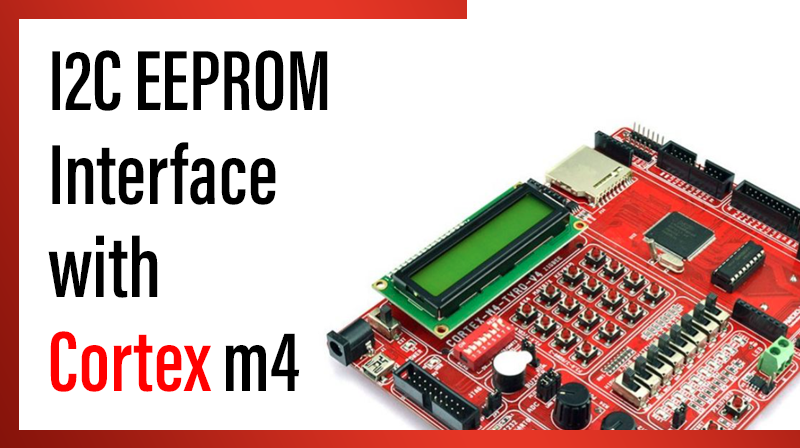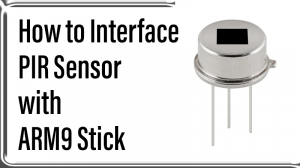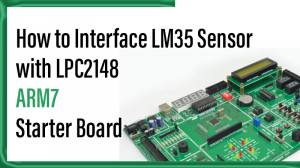
I2C EEPROM Interface with Cortex m4
This example describes how to make a communication with I2C EEPROM
Procedure for EEPROM interface with Cortex M4
- Initialize UART0
- Power: In the PCONP register, set the PCI2C0 bit
- Configure pins P0.27 (CH0) and P0.28 for I2C function using IOCON registers
- Clear all the I2C registers and Flags
- Enable I2C
- Configure the I2C frequency as 100KHz or 400KHz
- Enable I2C Interrupt
Write a block data: - Send START
- Send device address with write
- Send the block address where we going to write a block of data
- Send a block of data
- Send STOP signal
Read a block of data: - Send START
- Send device address with write
- Send the block address where we are going to read a block of data
- Send a REPEATED START
- Send device address with read
- Read a byte of data and send ACK signal
- Send a NACK signal if the byte read is the last byte
- Send STOP
- Display the data received in HyperTerminal
#include <LPC407x_8x_177x_8x.h>
#include "uart0.h"
#define DEVICE_ADDR 0xA0
unsigned char Status=0,rbuf[20],tbuf[20]="ARM CORTEX M4\r",Str[6];
unsigned char Status_Flag=0,i=0;
void Init_I2C0(void);
void Page_Write(unsigned char *str);
void Page_Read(unsigned char *str);
void wait_i2c(void);
void delay_ms(long ms);
void Start(void);
void Wait_I2C(void);
void I2C0_IRQHandler(void)
{
Status_Flag = 1;
Status = LPC_I2C0->STAT; // Read Status byte
LPC_I2C0->CONCLR = 0x28; // Clear Interrupt Flag
}
int main(void)
{
//1.Initialize UART
init_serial();
Init_I2C0();
delay_ms(100);
Page_Write(tbuf);
delay_ms(100);
while(1)
{
Page_Read(rbuf);
//21. Display the read data in HyperTerminal
UART0_puts(rbuf);
delay_ms(1000);
}
}
void Init_I2C0(void)
{
//2. set bit PCI2C0
LPC_SC->PCONP |= (1 << 7); /* enable power to UART0*/
//3. Configure pins P0.27 and P0.28 for I2C Clock and data
LPC_IOCON->P0_27 |= 1; /* Pin P0.2 used as I2C DATA */
LPC_IOCON->P0_28 |= 1; /* Pin P0.3 used as I2C CLK */
//4. Clear all the Registers
LPC_I2C0->CONCLR= 0x6C;
//5. Enable I2C
LPC_I2C0->CONSET= 0x40;
//6. Set I2C Frequency as 400KHz
// 30MHz/400KHz = 75=SCLH+SCLL=38+37=75
LPC_I2C0->SCLH = 38;
LPC_I2C0->SCLL = 37;
//7. Enable Interrupt
NVIC->ISER[0] |= (1<<10); //Enable I2C0
NVIC->IP[2] |= (0x3<<19); //Interrupt Priority 0-High, 31-low
}
void Start(void)
{
LPC_I2C0->CONCLR = 0x2C;
LPC_I2C0->CONSET = 0x20;
Wait_I2C();
}
void Page_Write(unsigned char *str)
{
Start(); //8. Send Start
LPC_I2C0->DAT = 0xA0; //9. Send device Address + write
Wait_I2C();
LPC_I2C0->DAT=0; //10. Send block address High
Wait_I2C();
LPC_I2C0->DAT=0; //10. Send block address Low
Wait_I2C();
for(i=0;i<16;i++)
{
LPC_I2C0->DAT = str[i]; //11. Send a block of data
Wait_I2C();
}
LPC_I2C0->CONSET = 0x10; //12. Send STOP
}
void Page_Read(unsigned char *str)
{
Start(); //13. Send Start
LPC_I2C0->DAT = 0xA0; //14. Send device Address + write
Wait_I2C();
LPC_I2C0->DAT=0; //15. Send block address High
Wait_I2C();
LPC_I2C0->DAT=0;
Wait_I2C(); //15. Send block address Low
Start(); //16. Send r-Start
LPC_I2C0->DAT = 0xA1; //17. Send device Address + read
Wait_I2C();
for(i=0;i<15;i++) //18. Read a byte of data and send ACK signal
{
LPC_I2C0->CONSET = 0x04;
Wait_I2C();
str[i] = LPC_I2C0->DAT;
}
//Last byte //19. Send a NACK signal and Read the Last byte
LPC_I2C0->CONCLR = 0x4;
Wait_I2C();
str[i] = LPC_I2C0->DAT;
LPC_I2C0->CONSET=0x10; //20. Send STOP
}
void Wait_I2C(void)
{
while(Status_Flag == 0);
Status_Flag = 0;
}
void delay_ms(long ms) // delay 1 ms per count @ CCLK 120 MHz
{
long i,j;
for (i = 0; i < ms; i++ )
for (j = 0; j < 26659; j++ );
}



